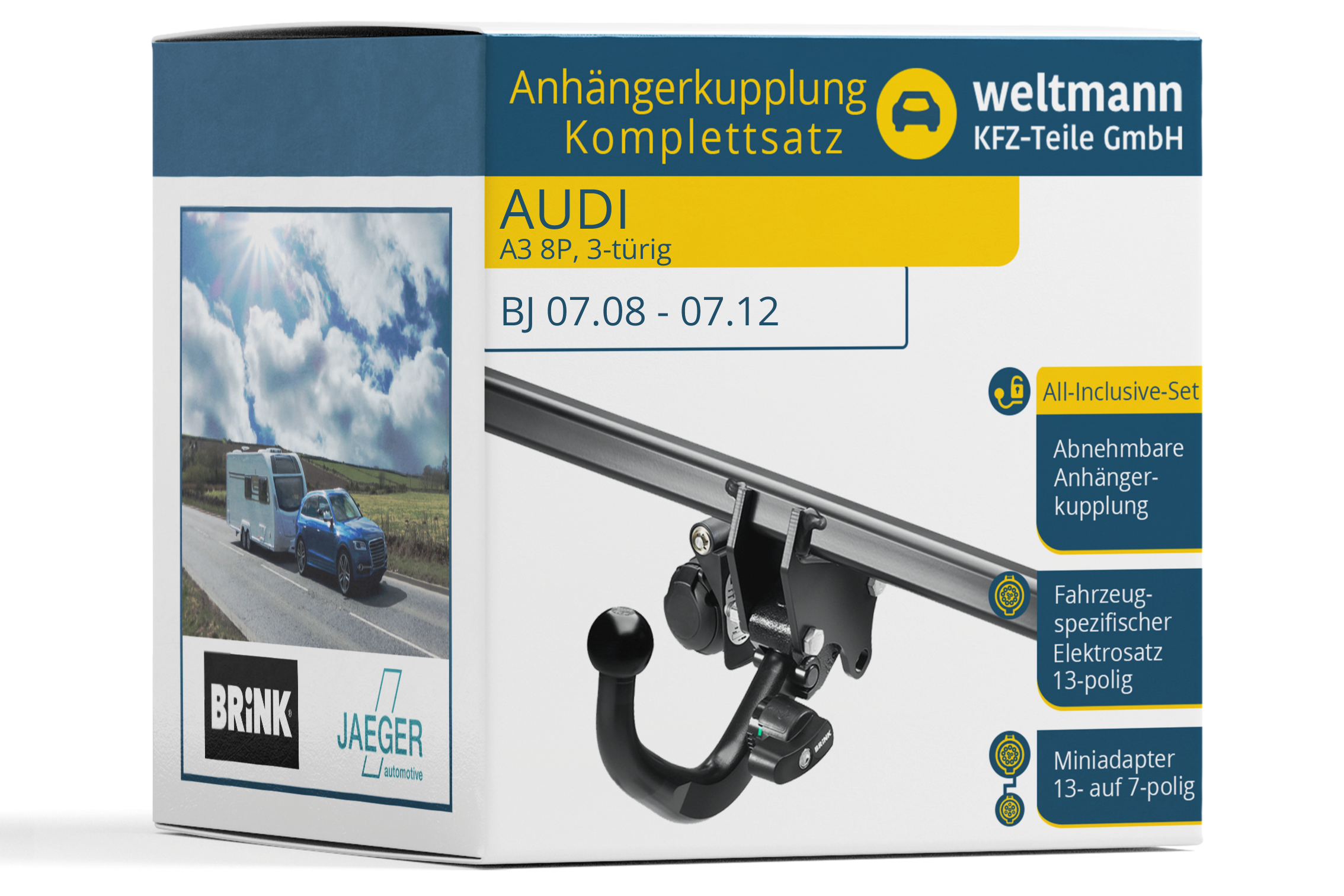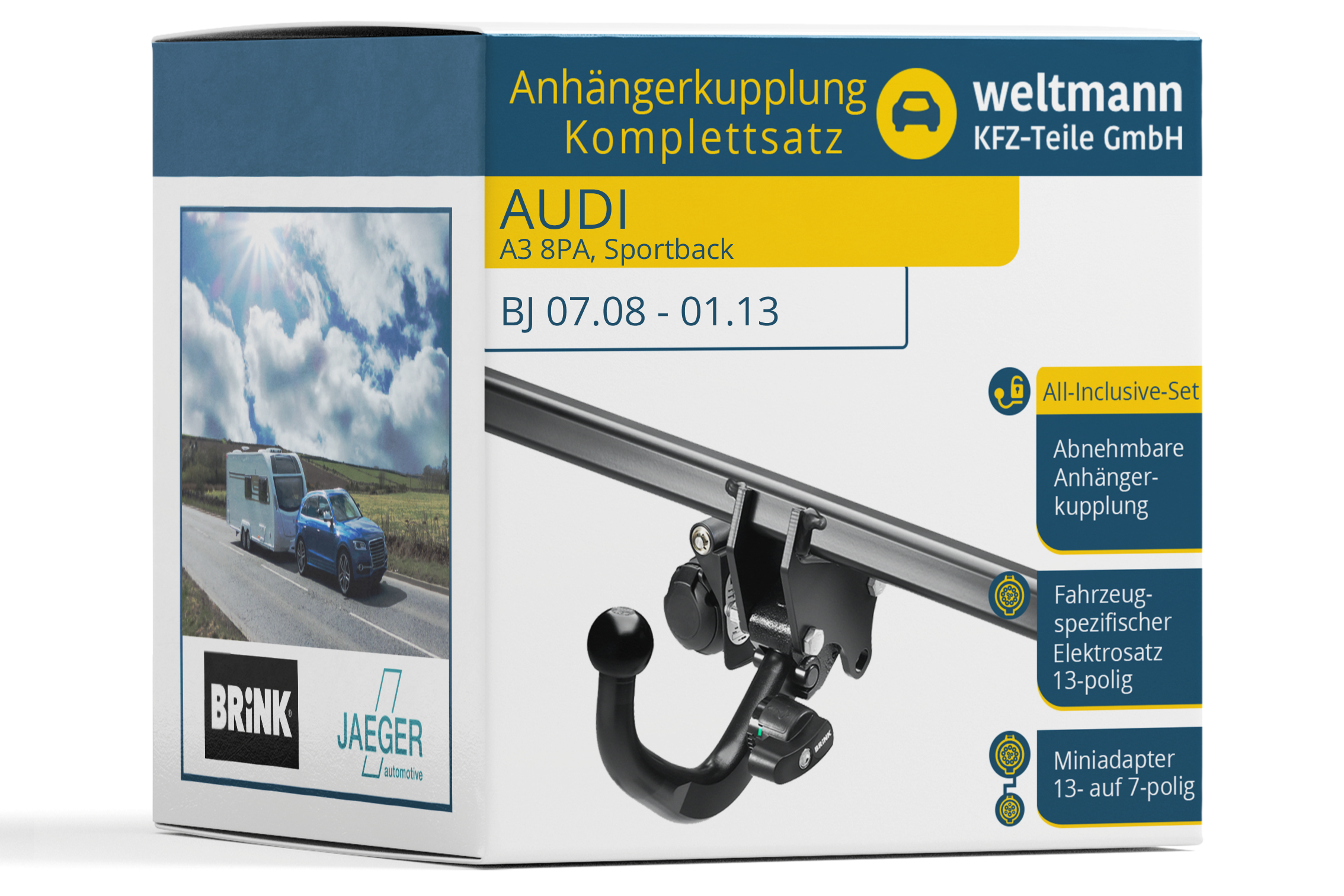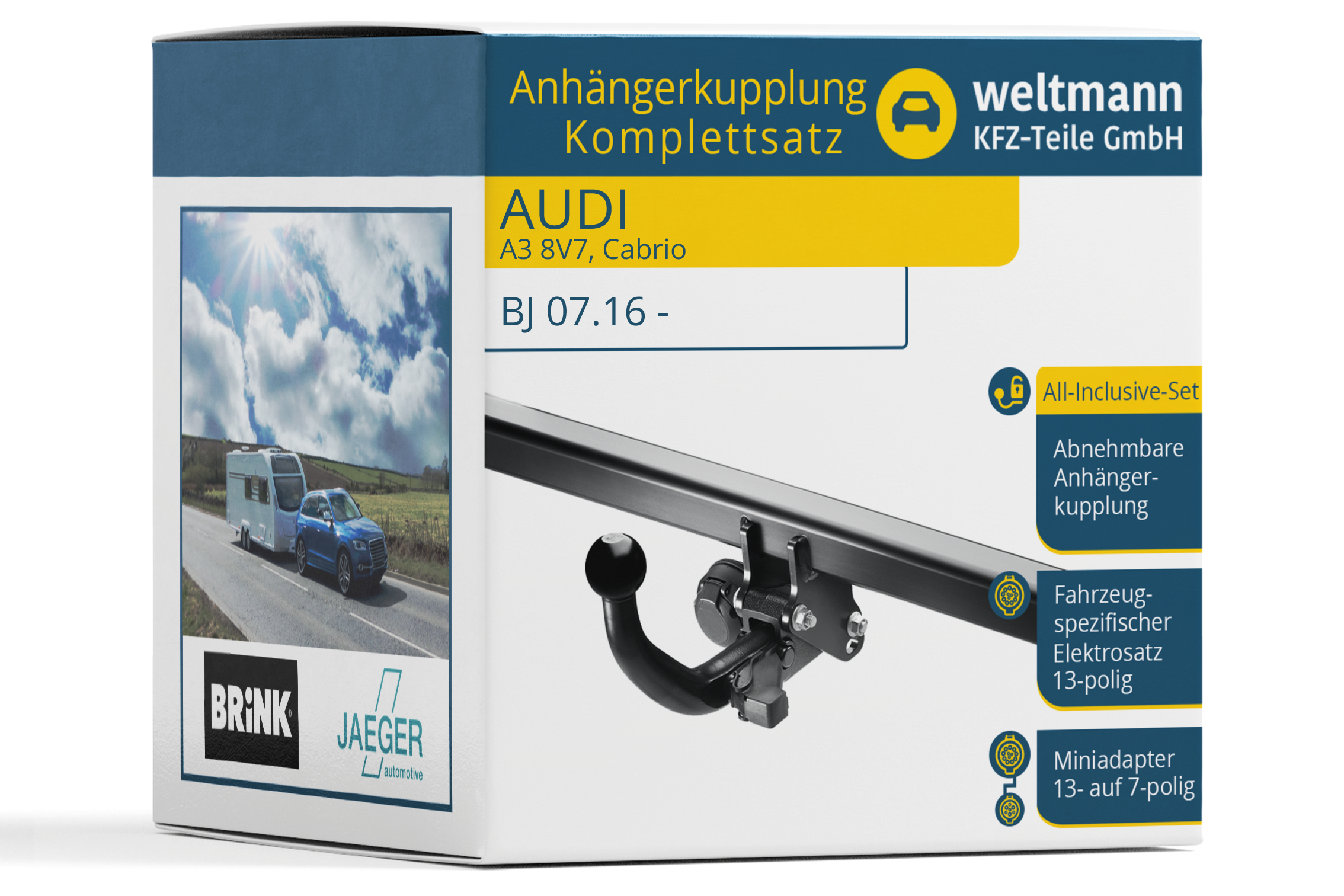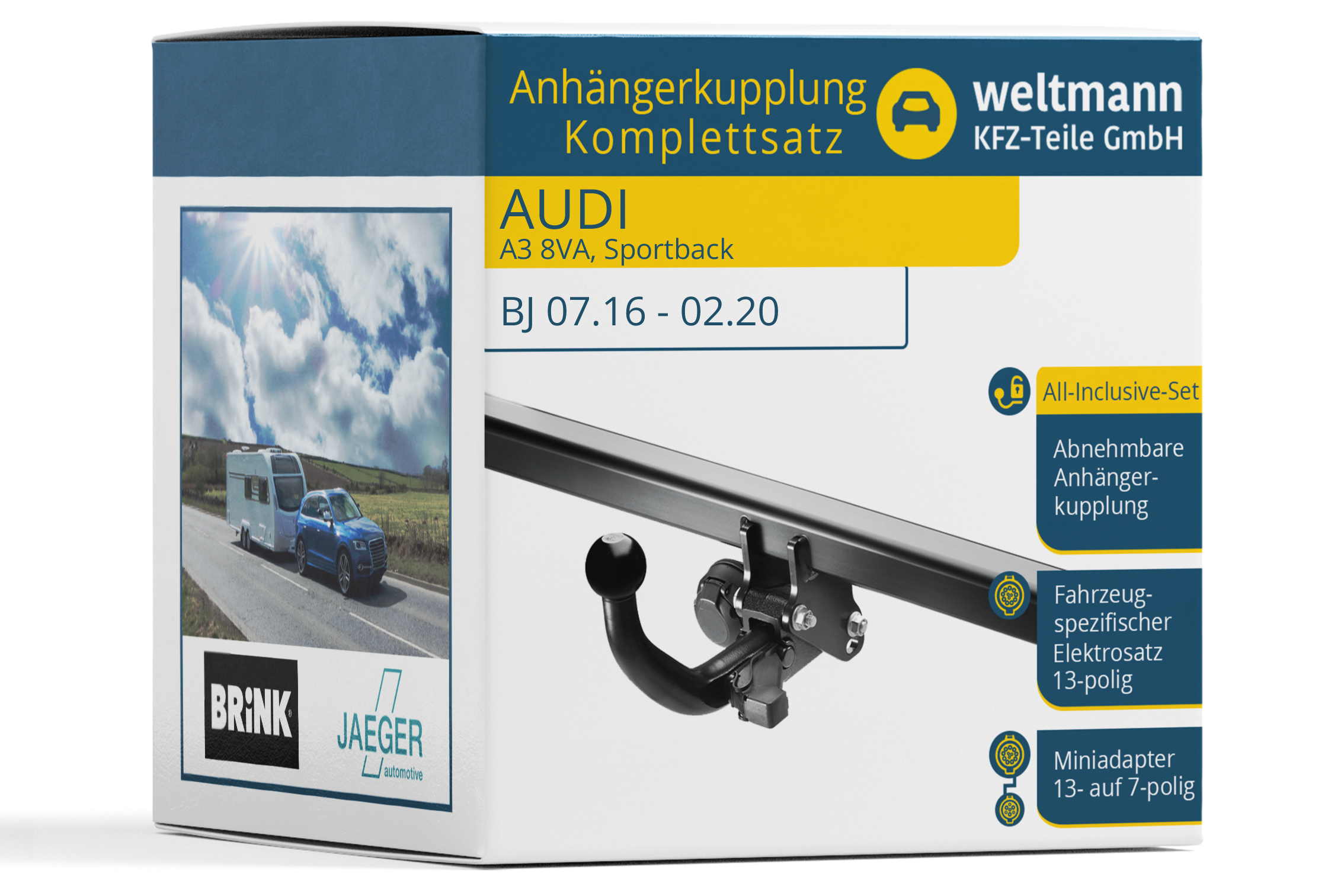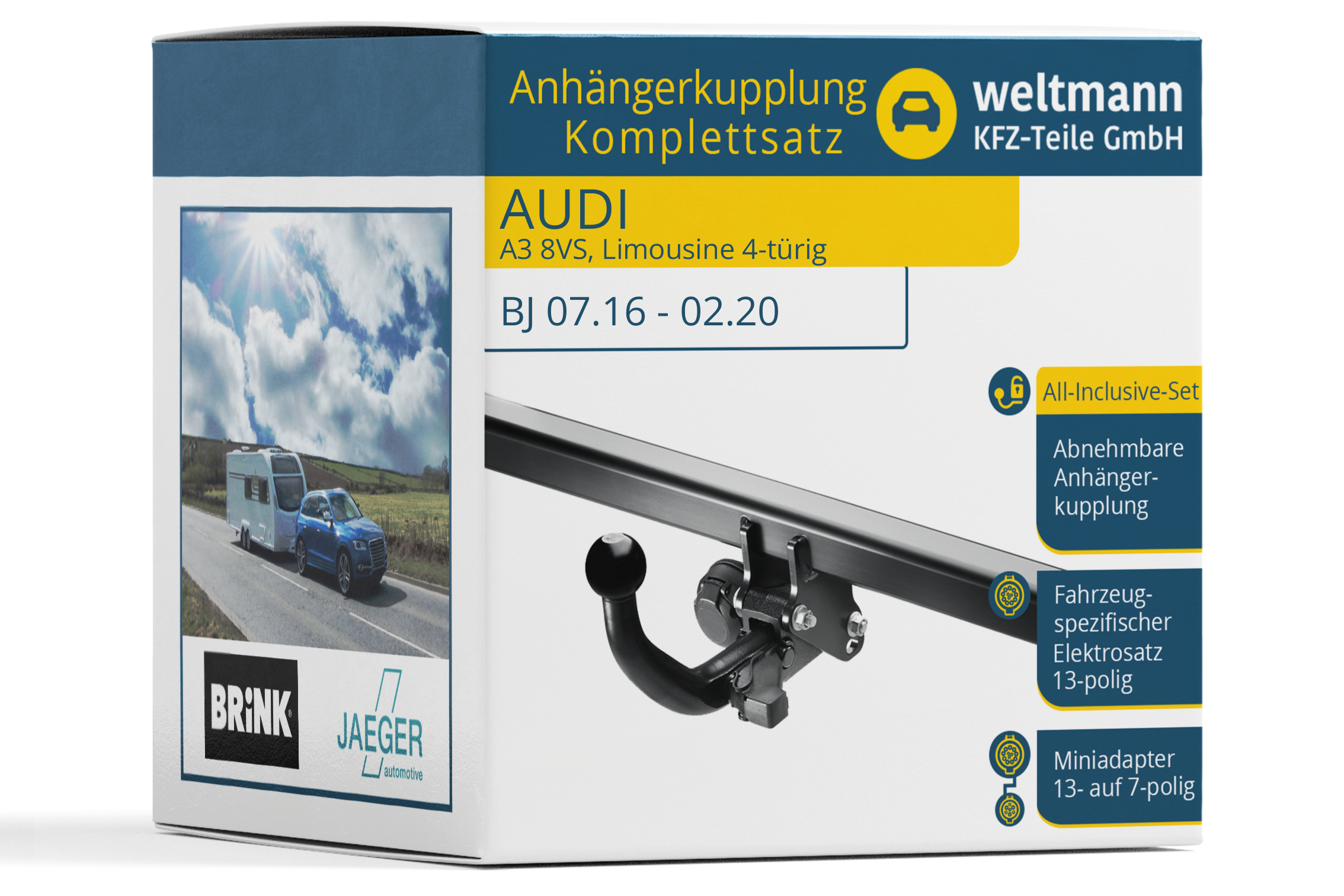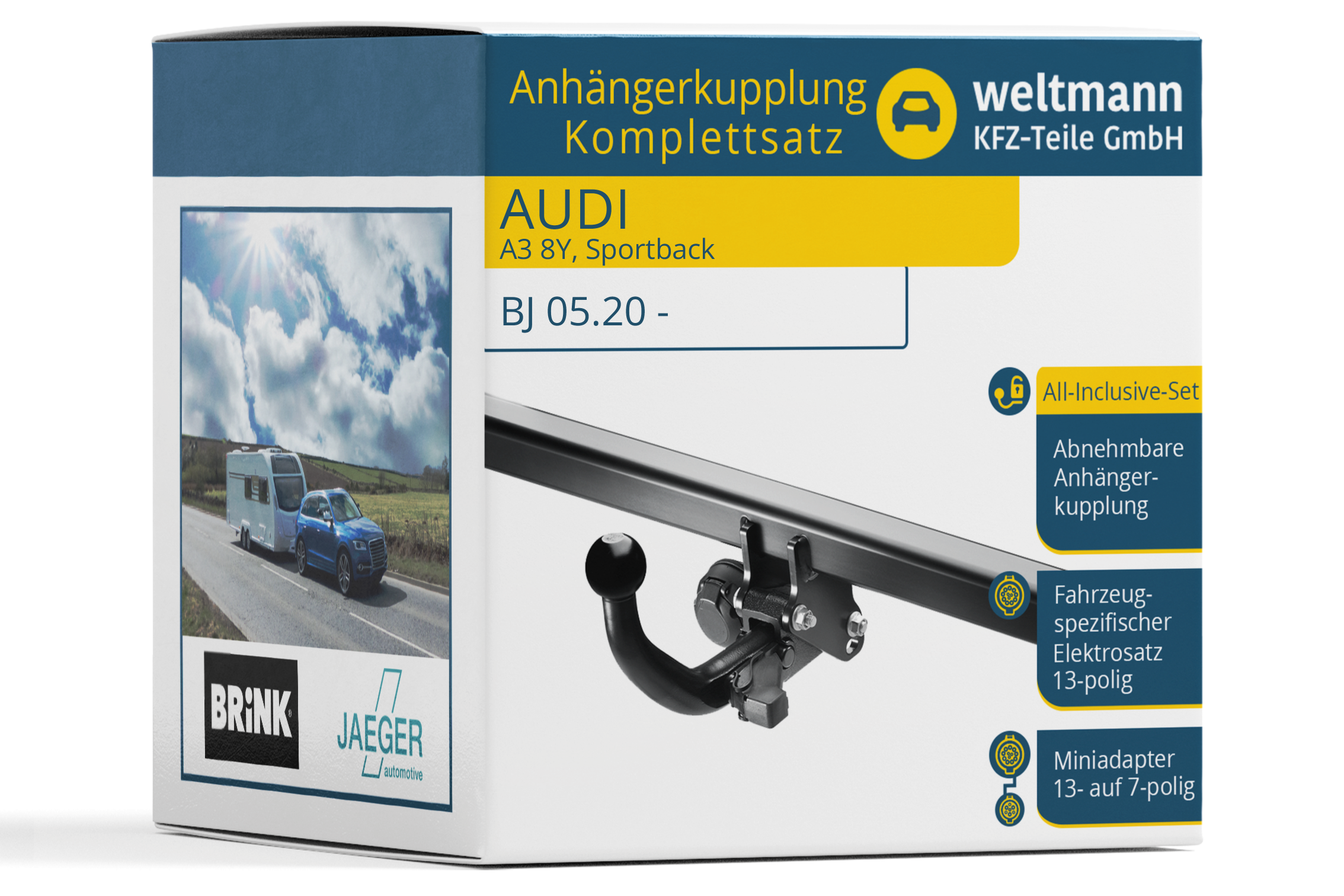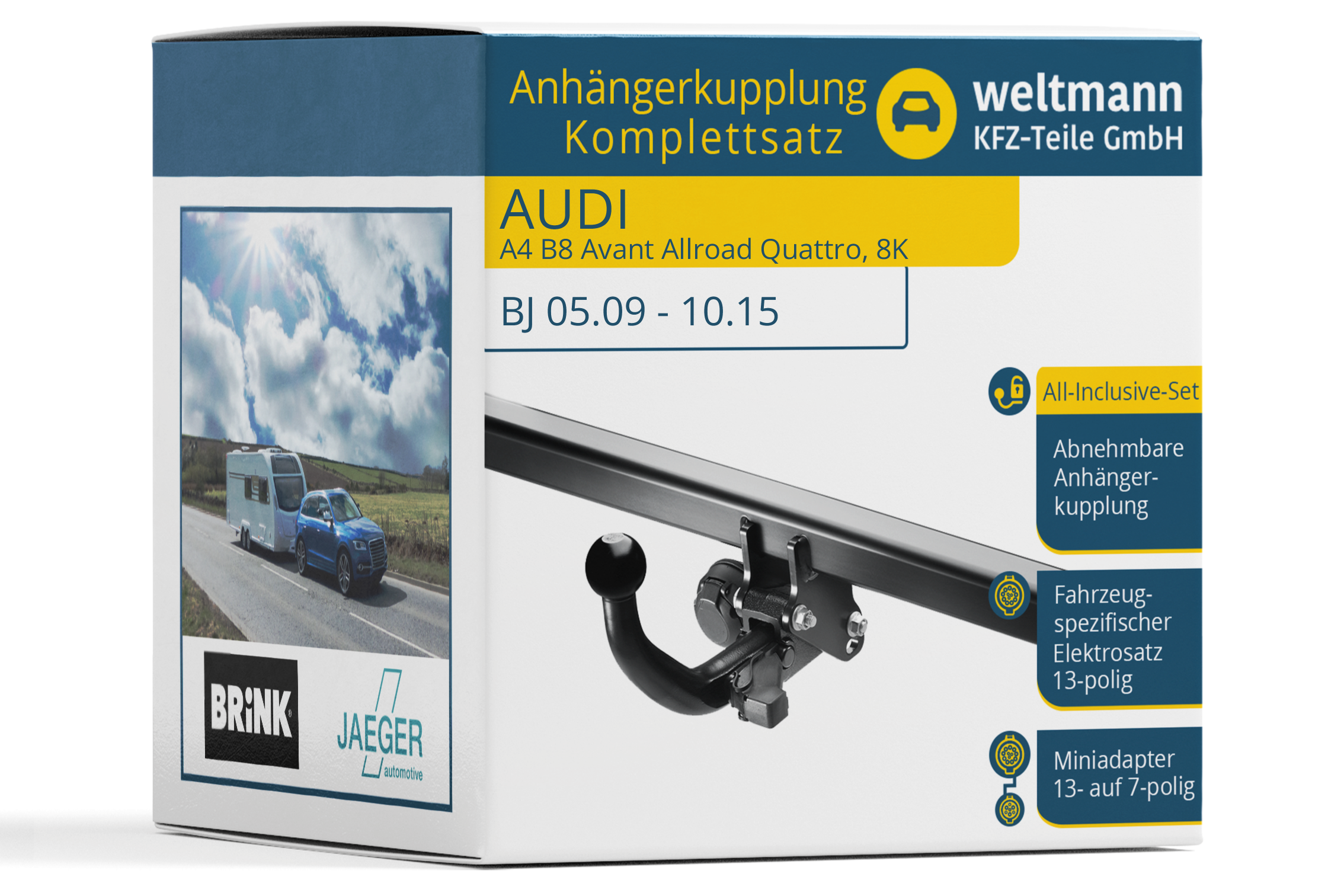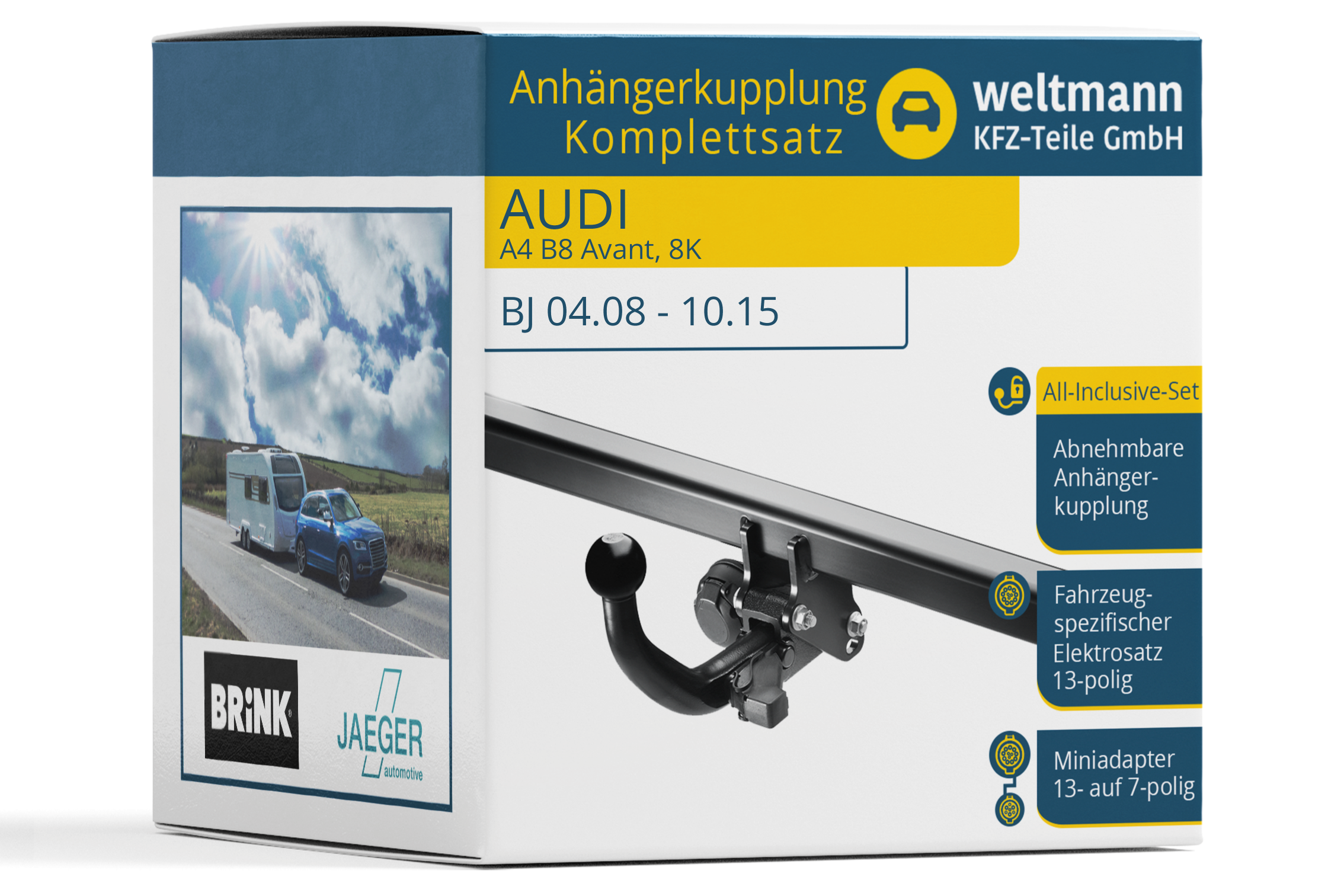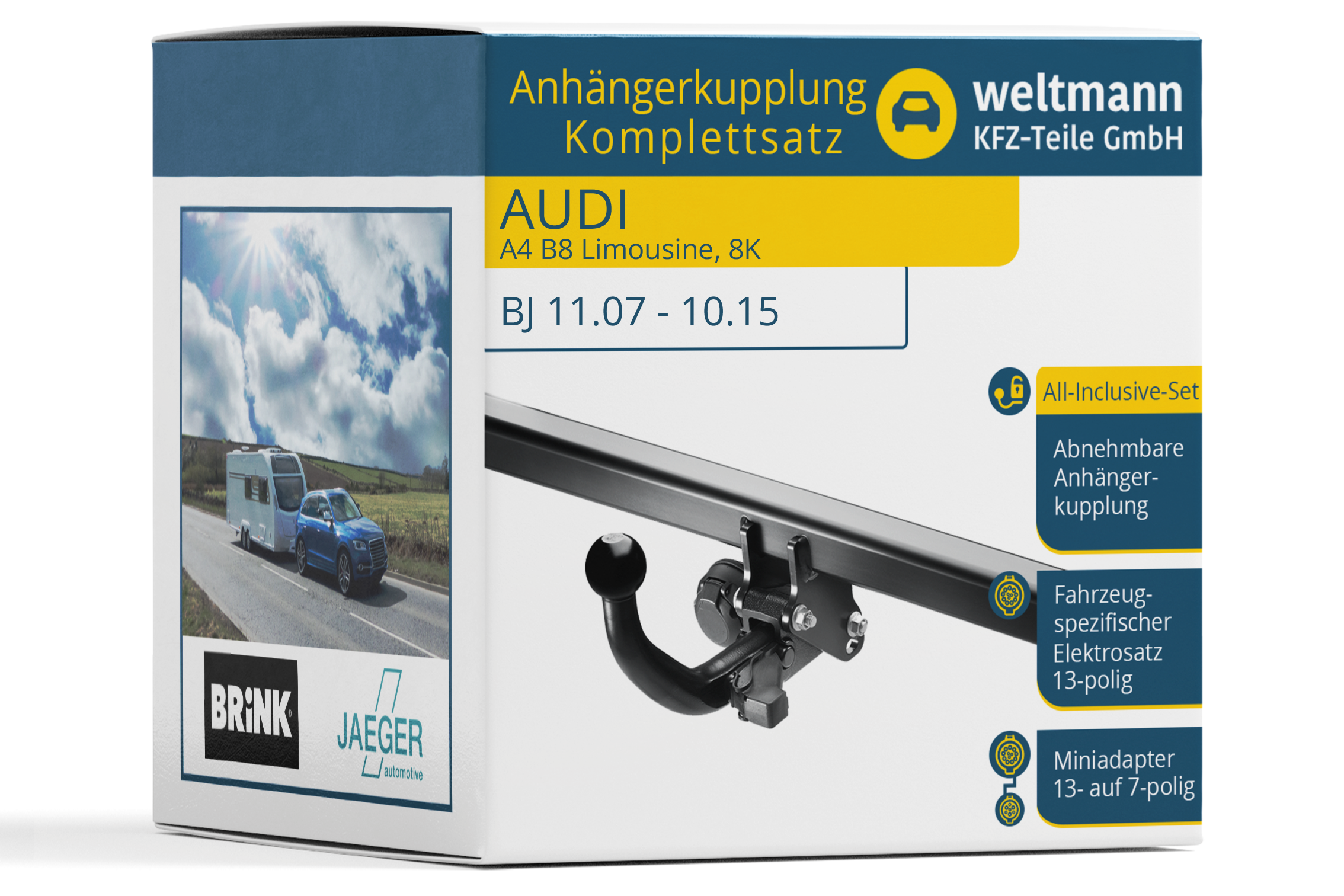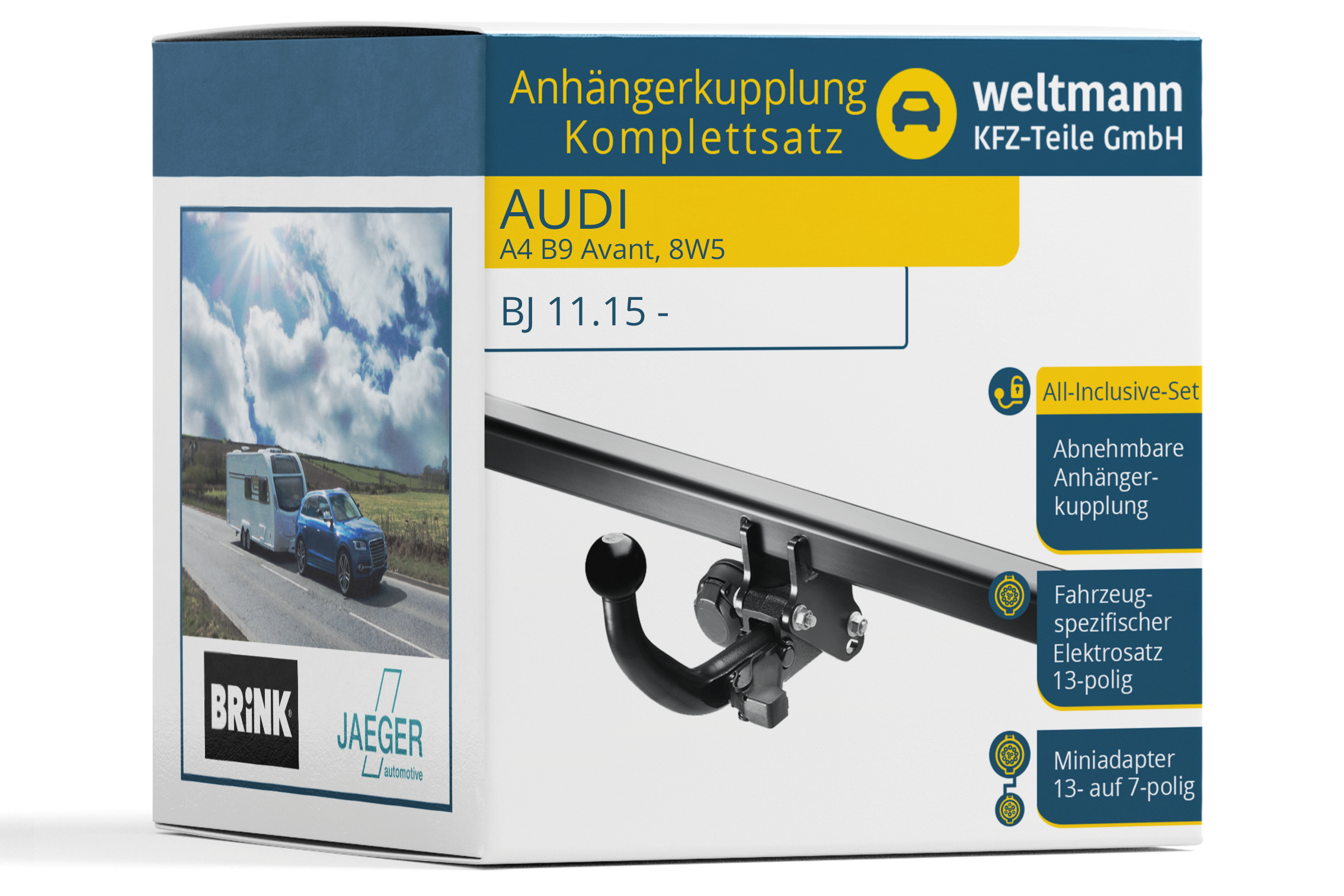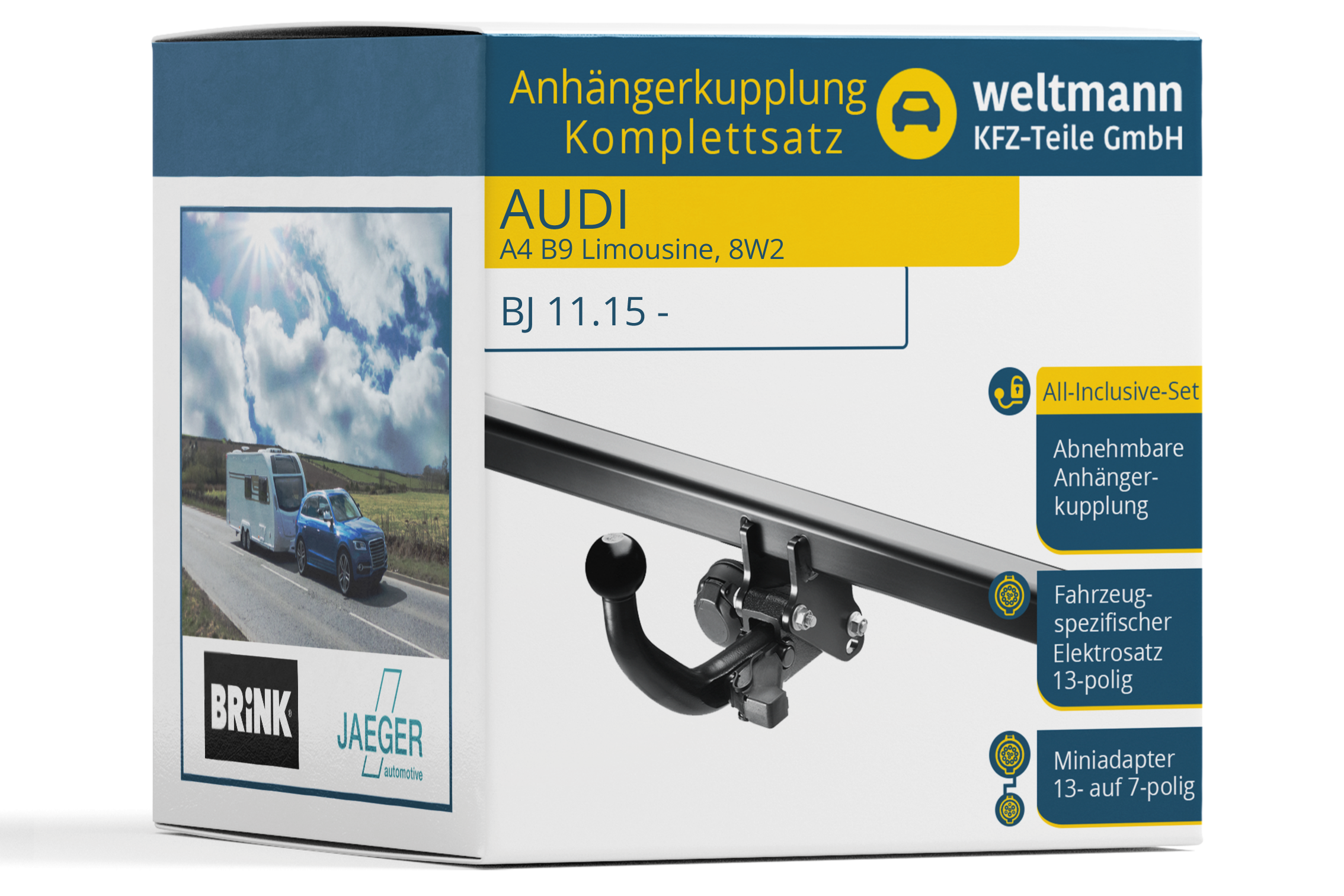Towbar
Are you looking for a high-quality towbar for your car? Then you’ve come to the right place at weltmann-kfzteile.de! Our online shop offers a wide range of towbars and complete towbar sets suitable for self-installation as well as installation by a professional workshop. Thanks to our vehicle-specific electrical kits, you’ll find the perfect solution for your vehicle. Whether you drive an Audi, VW, BMW, Opel, Ford, or another vehicle model – we have towbars for over 20 different manufacturers in stock and are continuously expanding our range.
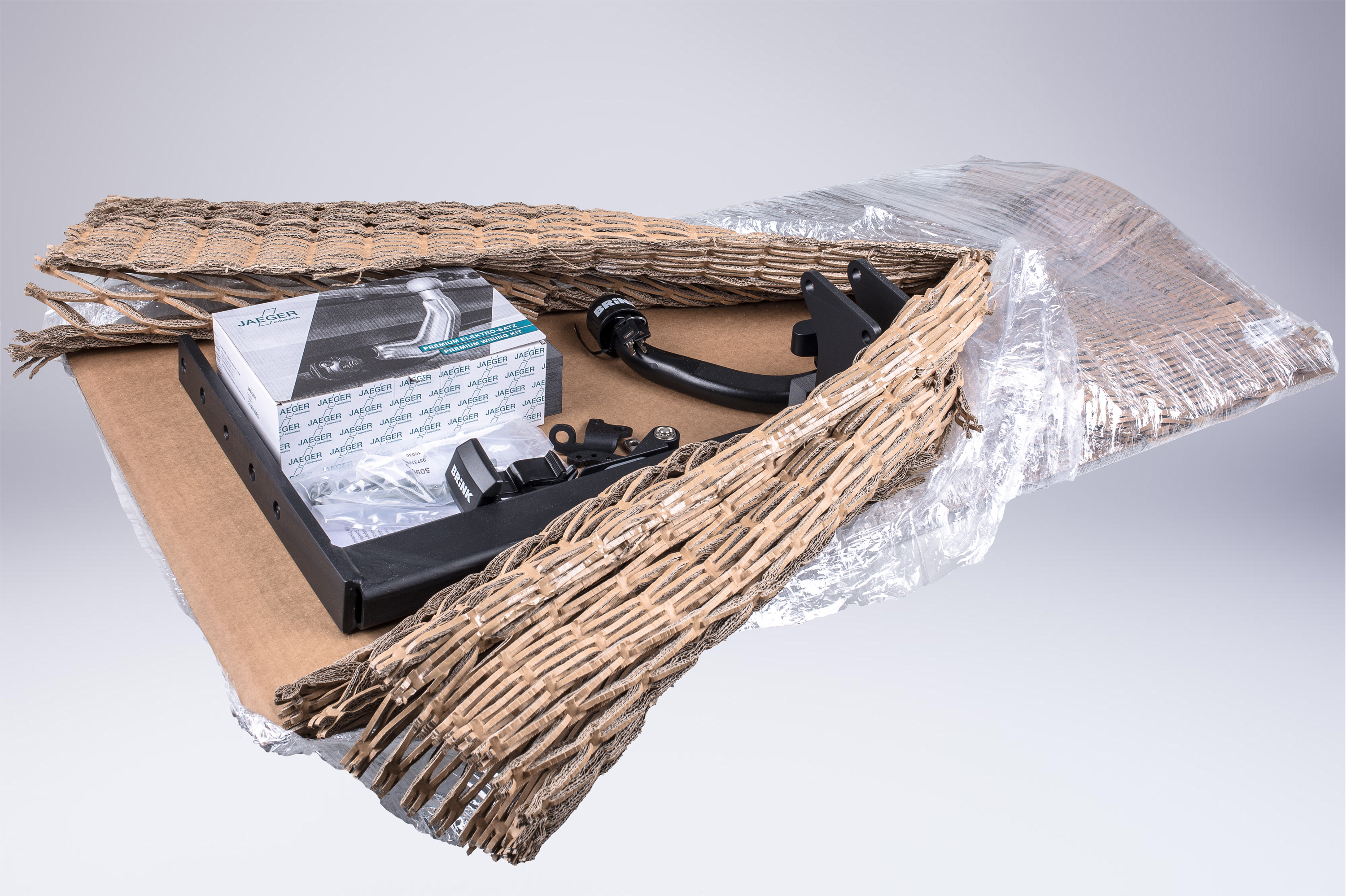
A towbar can increase the value of your vehicle and offers a wide range of applications. With a car trailer, you can transport larger loads or building materials cost-effectively, avoiding expensive delivery fees. A towbar quickly pays for itself. In our shop, you’ll find an extensive selection of towbars for cars.
However, towbars aren’t just for pulling trailers. You can also use bicycle carriers for towbars, which can hold up to four bicycles. With a bicycle carrier for towbars, you can conveniently transport your bikes, whether for cycling trips in different areas or even on vacation. The possibilities are endless, and retrofitting a towbar is definitely worth it. Our range includes high-quality kits that contain all the necessary parts.
How much does a towbar cost?
The cost of a tow bar can vary depending on the type of vehicle, brand, model, and type of tow bar. Generally, you can expect prices to range between €100 and several hundred euros for the tow bar itself. However, total costs may also include installation and additional accessories such as electrical connections, tow balls, and safety devices.
Which tow bar is suitable for my car?
The suitable tow bar depends on your vehicle. There are different types of tow bars, including fixed, detachable, and swiveling models. To find the right tow bar, consult the manufacturer's specifications and recommendations for your vehicle. A professional can also assist you in making the right choice.
Can I install a towbar myself?
Installing a towbar yourself requires technical know-how and the right tools. It is advisable to have it installed by a professional, as improper installation can lead to safety issues. Proper installation ensures the towbar is securely and stably attached to the vehicle.
Detachable or fixed towbar: Which is better?
The choice between a detachable and a fixed towbar depends on your individual needs. Detachable tow bars offer the advantage of being invisible when not in use, preserving the vehicle's design. Fixed tow bars are generally more robust and can handle higher towing capacities. Your choice should depend on your requirements and preferences.
"How much can my car tow?"
- The permissible towing capacity of your vehicle is specified by the manufacturer in the vehicle documents or manual. You should strictly adhere to these specifications to ensure safety. The towing capacity depends on various factors, including the engine, brakes, and suspension of the vehicle.
"Retrofitting a tow bar: What should I consider?"
- Retrofitting a tow bar requires professional installation and consideration of factors such as towing capacity, electrical connections, and safety measures. It is important to follow legal regulations and manufacturer guidelines, and to have the work done by a qualified expert.
"Which trailers are suitable for my car?"
- The suitability of trailers depends on your vehicle's towing capacity. Check the vehicle documents and manuals to determine which trailers and loads your car can safely tow. Different trailers may also require different couplings and electrical connections.
"Which tow bars are suitable for caravans?"
- Caravans often require robust tow bars capable of handling high towing capacities. It is important to ensure that the tow bar meets the specific requirements of the caravan and is compatible with the electrical connections.
"Are there tow bars with integrated electrical connections?"
- Yes, some tow bars feature integrated electrical connections, making it easier to connect trailers with lighting and brakes. This can simplify installation and use.
Everything You Need to Know About Towbars:
If you’re involved in trailer transportation or considering it, a towbar is an essential accessory. In this comprehensive guide, we’ll cover everything you need to know about tow bars, from the different types and installation to maintenance and crucial tips for safe use.
1. Types of Towbars
Before choosing a towbar, it’s essential to understand that there are different types, and not all will suit your vehicle or specific needs. Here are the most common types:
1.1 Ball Hitch Towbars: These are the most common and consist of a ball and a coupling that lock together. They are suitable for light to medium trailers.
1.2 Pin and Eye Couplings: Often used for heavy trailers and commercial vehicles, these provide a more stable connection and are generally more robust.
1.3 Detachable Towbars: These allow you to remove the towbar when not in use. They are aesthetically pleasing and can reduce air resistance.
1.4 Retractable Towbars: These offer the convenience of swinging the tow ball under the vehicle when not in use, enhancing comfort and safety when parking.
Tip
To ensure the safety and functionality of your car's tow bar, you should keep the following points in mind:
- Weight distribution: Make sure the load in the trailer is evenly distributed. A well-balanced trailer reduces the risk of swaying and improves driving stability.
- Check the tires: Regularly inspect the tire pressure and condition of the trailer tires, as they endure significant stress and are crucial for driving stability.
- Check the lighting: Before every trip, verify the trailer's lighting. Functional tail lights and indicators are not only legally required but also essential for your safety and that of other road users.
By regularly following these simple steps, you can ensure your journeys with the trailer are safe and stress-free.
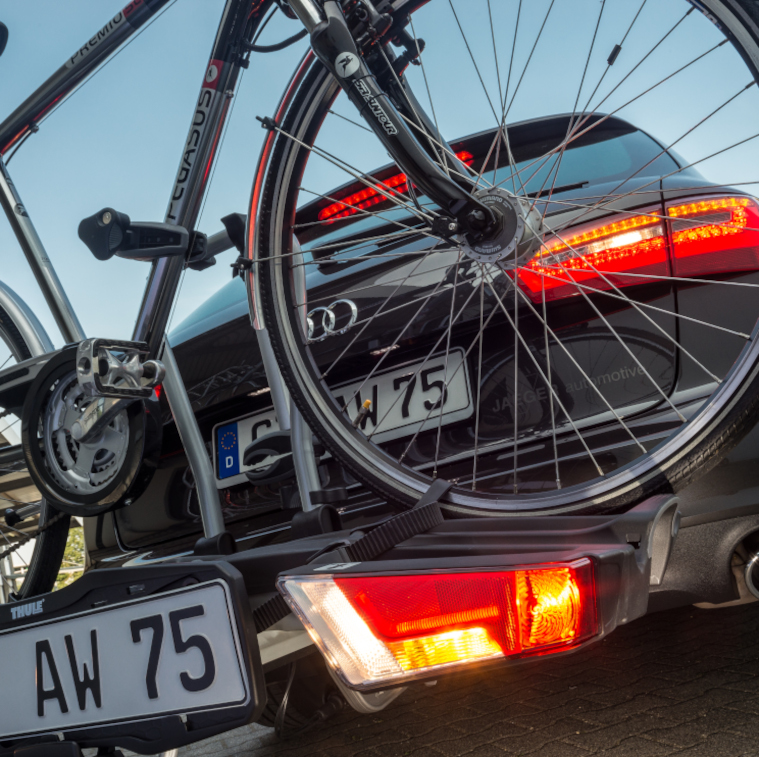
Did You Know?
In Europe, the towing capacity of a car is strictly regulated by law and is often directly linked to the type of tow bar. For instance, the maximum towing capacity your vehicle can handle may vary significantly depending on the model and type of tow bar. Modern car tow bars are not only designed for towing trailers but also offer practical advantages, such as attaching bicycle carriers. This means you can make use of your tow bar even when you’re not towing, making it a versatile and valuable accessory for your car.
2. Installing a Tow Bar
Installing a tow bar is not a task for the average car owner. It requires specific knowledge and tools, and it is recommended to leave the job to a qualified mechanic. Here are the basic steps involved in the installation:
2.1 Vehicle Preparation: Depending on the type of vehicle, parts of the rear or bumper may need to be removed to create space for the tow bar.
2.2 Attaching the Tow Bar: The tow bar itself must be securely mounted to the vehicle. This requires precise work to ensure the bar is firmly and stably attached.
2.3 Electrical Wiring: Depending on the type of tow bar, electrical wiring may be required to control the trailer’s lights. This step should also be carried out with great care.
2.4 Test Drive: After installation, it’s important to conduct a test drive to ensure everything is working correctly.
3. Maintenance and Care
Neglecting a tow bar can lead to dangerous situations, so regular maintenance is essential. Here are some important aspects of maintenance:
4. Tips and Recommendations
Use the right type: Ensure the towbar chosen is compatible with your vehicle and the trailer being towed.
Weight capacity: Make sure the total weight of the trailer does not exceed the maximum capacity of the towbar.
Safety check: Conduct a safety inspection before each trip to ensure all connections are secure and tight.
Follow speed limits: Adhere to speed limits and safety regulations when driving with a trailer.
5. Where to Get a Towbar
A wide selection of towbars and accessories can be found at specialized dealers, car workshops, and online stores. If you're looking for high-quality tow bars, we recommend visiting the website weltmann-kfzteile.de. There, you'll find a comprehensive selection of tow bars and accessories.
Common Costly Mistakes When Installing a Towbar
Installing a towbar can be expensive if decisions are not carefully considered. Here are some common costly mistakes:
Lack of Research: Failing to thoroughly research may lead to choosing the wrong type of towbar for your vehicle. If compatibility is not checked, you may end up purchasing an expensive towbar that doesn't fit.
Insufficient DIY Skills: Attempting to install the towbar yourself without the necessary skills or tools can cause significant damage to your vehicle. Repair costs may far exceed professional installation fees.
Buying Cheap or Low-Quality Products: Opting for a cheap or low-quality tow bar to save money can be a costly mistake. Poor quality can lead to premature wear and potentially dangerous situations.
Ignoring Safety Regulations: Overlooking safety regulations and standards can result in hefty fines. Additionally, an improperly installed tow bar can cause accidents, leading to costly repairs.
Overlooking Electrical Needs: Some towbars require electrical wiring for trailer lights. Neglecting this important component can lead to expensive problems and safety risks.
Skipping Professional Advice: Failing to consult a professional before purchasing or installing a towbar can lead to unnecessary expenses. A professional can help ensure the right choice and proper installation.
Neglecting Maintenance: An overlooked towbar may require costly repairs over time. Regular maintenance and inspections are crucial to extending the tow bar's lifespan and avoiding expensive issues.
Underestimating Utility: Another mistake is underestimating the utility of a towbar. Buying a low-quality towbar that does not meet your needs may result in additional costs for upgrades or replacements later.
It is advisable to plan thoroughly, gather information, and seek professional support when retrofitting a towbar to avoid costly mistakes.
Do I need a special tow bar for my caravan?
Yes, if you want to tow a caravan, you need a special tow bar designed for caravans and heavier trailers. These tow bars are usually more robust and can carry more weight than those intended for light trailers or bike carriers.
There are different types of tow bars suitable for caravans:
- Fixed tow ball: This type of tow bar is the most common for caravans. It provides a solid connection between the vehicle and the trailer.
- Swiveling tow ball: Some caravan tow bars feature a swiveling tow ball, offering better maneuverability.
- Permanently mounted tow bar: These tow bars are fixed to the vehicle and cannot be removed.
When selecting a tow bar for your caravan, ensure it supports the required towing capacity and nose weight of your caravan. This information can be found in your caravan's documentation. It’s crucial to carefully check the specifications and ensure the tow bar is compatible with your vehicle type and caravan.
It is strongly recommended to have the tow bar installed by a professional to ensure it is properly mounted and safe. Correct installation and wiring are essential for safe and reliable operation when towing a caravan.
Which tow bar is right for me?
After deciding on the type (fixed, detachable, swiveling, or flange), you should select a high-quality tow bar set. Brands like Brink, AL-KO, Bosal, and Galia offer a wide range of premium products. These sets include all necessary components for seamless installation.
Technically skilled vehicle owners can usually install the tow bar themselves, including the electrical wiring. However, if you are unsure, professional installation by a workshop is recommended.
Is Self-Installation Possible?
Installing a tow bar yourself is possible, but it requires some technical knowledge, experience with vehicles, and the right tools. It’s important to note that improper installation can not only be unsafe but may also void your vehicle’s warranty. Before deciding to undertake self-installation, consider the following tips and factors:
- Read the Instructions: Every tow bar comes with installation instructions. Carefully read these to ensure you understand the process.
- Tools and Equipment: Make sure you have the necessary tools and equipment to securely mount the tow bar. This may include wrenches, socket sets, a torque wrench, and other specialized tools.
- Safety: Ensure the vehicle is securely lifted and cannot roll away. Use jack stands or a lift to elevate and stabilize the vehicle.
- Electrical Connections: If your tow bar requires electrical connections for trailer lights, you’ll need knowledge of vehicle wiring. Faulty connections can be hazardous.
- Patience: Installing a tow bar requires patience and precision. Take your time to ensure each component is correctly installed.
- Help: Having assistance, especially with heavy or bulky parts, can make installation easier. Two people can often complete the task more efficiently.
- Vehicle Warranty Considerations: If your vehicle is still under warranty, be aware that self-installation may void it. Some manufacturers require installation by authorized workshops to ensure proper installation.
- Legal Regulations: Ensure that your self-installation complies with the legal requirements in your region. In some countries or states, installing a tow bar may be subject to specific regulations.
If you are unsure or lack experience with installing tow bars, it is advisable to seek the services of a professional workshop or mechanic. They can ensure the tow bar is installed correctly and all safety and warranty considerations are met. Safety should always be the top priority when installing vehicle accessories.
Kontaktiere Uns auf Whatsapp
Wählen Sie einen Unserer verfügbaren Support Mitarbeiter aus oder schreibe uns eine Email unter info@weltmann-kfzteile.de









